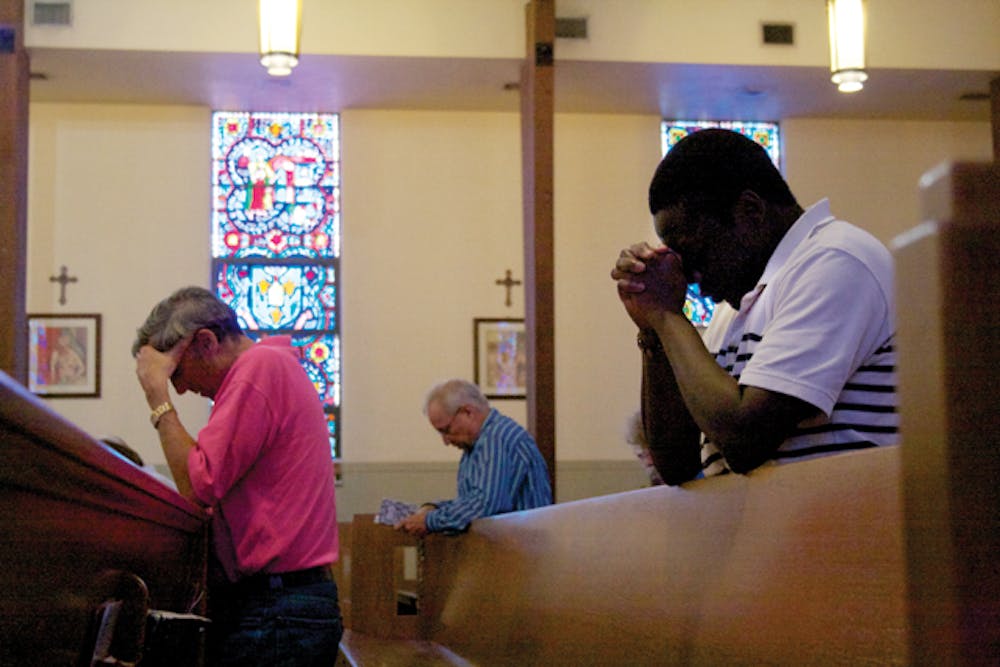Anna Holmbraker attends church every week and leads songs during Mass. For the 20-year-old anthropology junior, church brings a sense of optimism and belonging.
"It gives me time to reflect on where I'm at and where I want to be," she said. "It makes me check myself and fix things that aren't right in my life."
Holmbraker isn't alone.
According to a recent study, attending church could actually affect people on a clinical level.
Researchers at Yeshiva University in New York found that women who regularly attended religious services were 56 percent more likely to be more optimistic and 27 percent less likely to show signs of depression.
Published Thursday in the Journal of Religion and Health, the study considered the mental health of about 92,000 women older than 50.
Although attending church could affect all age groups and both males and females, the study's findings were drawn only from older women, said Eliezer Schnall, a clinical assistant professor of psychology at Yeshiva University.
He said the benefits are more critical and more easily seen among this demographic.
The women studied came from different ethnic backgrounds, religions, income levels and geographic regions, Schnall said.
The study "purposefully didn't break the findings down into specific religions," he said. "If it did, our findings may do more harm than good."
People could have interpreted the findings as proof of one religion being better than another, he said, when that was not the purpose of the study.
Mike Redmond, pastor of Windsor Baptist Church in Gainesville, said he has seen people become more optimistic because of church.
"In my personal experience, it's not the overly optimistic people who begin to attend church but the people who are struggling and looking for answers," he said.
"Misery likes company. Women who are having trouble rearing their children go to church and find out that every other mother is in the same boat, and then they feel better."
Redmond said he has seen young people benefit from church.
"[College students] disguise their issues through the adrenaline rush of youth," he said, and "are involved in activities that bring temporary joy, but that may add to the emptiness that needs to be addressed in their 50s."
St. Augustine Church members pray before noon Mass. According to a recent study, women who regularly attended religious services were 56 percent more likely to be optimistic and 27 percent less likely to show signs of depression.






